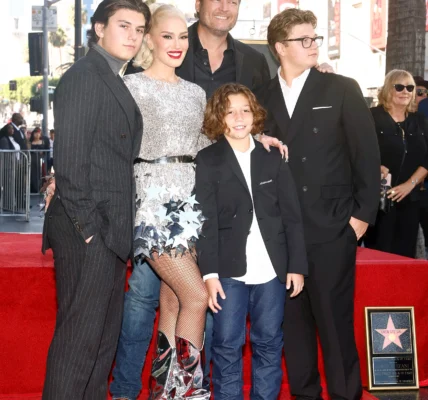When I was a child, my dad insisted on always having the oldies station on in the vehicle when we were traveling, back in the days before streaming services. It drove me crazy at the time, but I soon realized he had given me a wonderful gift: a casual, deep understanding of every classic song in the rock and roll repertoire.
That’s why, at the age of forty-five, I became a father myself, rather belatedly, I took some time to consider what music I might force on my daughter. It seemed like a significant decision because it’s said that music you introduce to a newborn stick with them for the rest of their life.
Half-crazy as I was, I mixed in two prickly, furious rebel songs with the more traditional bedtime music: “The Times They Are A-Changin'” by Bob Dylan and “Navigator” by the Pogues. I won’t say much about the former, since I assume you already know all about it, other than to say that singing to a child who will turn 25 the year I turn 70 still makes me feel like a contrarian. I sing lines like “Come, mothers and fathers throughout the land / And don’t criticize what you can’t understand / Your sons and your daughters are beyond your command / Your old road is rapidly aging.”
However, because Shane MacGowan, the lead man for the Pogues, recently passed away at the age of 65 after a life filled with tragic beauty, you might not be familiar with the song “Navigator.” As a result, I believe this is my only opportunity to subtly bring up the song in public.

Although MacGowan’s first band, the Nips, was managed by Philip Gaston, who wrote the song, MacGowan’s vocals give it a powerful mix of elegiac grief, righteous wrath, and victorious vindication, with maybe a hint of how-did-we-miss-this jealousy. The song is about navigators, sometimes known as “navvies,” who were itinerant workers—many of them Irish—who performed the grueling, painful, and occasionally lethal manual labor involved in constructing Great Britain’s renowned railroads throughout the 1800s.
This is the opening verse:
The cuttings and embankments, the bridges and canals
With their guts and sweat, they dug and blasted.
They always drank pints of whiskey instead of water.
And the noises of their music and fighting reverberated across the slums.
You can see that I’m a strange father straight away. To what infant is this song sung? However, I had my justifications. In a time when far too many Irish Americans have joined the MAGA movement against immigration and when riots against transplants from other EU countries are rocking Ireland, I wanted my child to know deep down that our ancestors were the anonymous people working inhumane hours for an empire that cared nothing at all for their well-being and that these people, no matter where they came from or who they are, will always be Irish.
If such individuals don’t consistently adhere to the subtleties of manners, then neither did we.
We discover further details about the horrors these laborers endured in the second verse:
As hundreds of them perished, there was no marker to indicate their
Keep the brass in the business owner’s pocket.
They were buried so deeply by a landslide and a rock explosion.
so they will sleep in peace in death, if not in life.
This is definitely starting to look bad. People are dying—in explosions, for crying out loud. And for what purpose? to benefit a few far-off “entrepreneurs”? Remember why I’m singing this to a kid once more?
However, the third verse emphasizes the point:
Here, they are leaving their mark that is still discernible.
The path to a trade in which enormous profits were earned
The resources of an empire in which daybreak never occurs
which is currently completely dark, but the railroad is still present.

I won’t go into detail. You see how this comes to an end. The business owner is long gone. Everywhere in the world, popular uprisings have brought down the empire, which was founded on the inexpensive transportation of products to distant locations. However, what those anonymous workers constructed—the railroads themselves—survives. Therefore, it is our responsibility to keep in mind who built them, how, and how much they cost. We also need to think about what else is being constructed in this crazy world right now, by whom, and under what terrible conditions, but nevertheless has actual beauty and worth and a genuine possibility of surviving past our current circumstances.I believe that those of us with Irish ancestry are in a good position to periodically remind folks of things like this. We should at least remind ourselves.
In any case, you may still choose to report me to Child Protective Services; if so, that’s OK. Let’s continue our conversation on the amazing, late Shane MacGowan.
It’s astonishing he lived this long, in a way. Twenty years prior, a documentary film team had recorded his father describing him as having a “brilliant brain.” Still does, even after a few million brain cells. The phrase “a few billion” stuck in my memory, and to be honest, by the end, it was probably a more accurate count. However, he had also cleaned up in recent years, and it was not further substance usage that took his life, but rather an illness.
Considering how much I talk about how Irish he is, it’s amusing to note that MacGowan was born on Christmas Day 1957 in Kent, England. However, because his parents were Irish, he drew inspiration from his background while he was a musician, bringing punk energy and vitality to traditional music. At his worst, he was so uncontrollably wild that the Pogues, whom he had established in 1982, threw him out ten years later. He was also falling down drunk and hooked on heroin, which Sinéad O’Connor reportedly helped him stop. (He performed with the group until 2014, having joining in 2001.)
However, at his peak, well, what can be said? Without him, what would Irish music be like today? Pay particular attention to John Francis Flynn, whose excellent new CD Look Over the Wall, See the Sky stretches the boundaries of what trad may be. Tributes to him have been pouring in today. Flynn described MacGowan as “an absolute hero” and stated on Instagram that “my own music owes so much to him.”
MacGowan was a songwriter who created songs that went straight from the heart to the veins. He would, however, throw a drink in your face before things got too serious. After all, the band’s name is derived from the Irish proverb “kiss my ass,” póg mo thóin.
“It was Christmas Eve, babe, in the drunk tank” is the opening lyric of the improbable smash holiday song “Fairytale of New York,” which sums up Shane MacGowan and the Pogues perfectly. The renowned songs written by MacGowan are numerous and include “A Rainy Night in Soho,” “Sally MacLennane,” and “If I Should Fall From Grace With God.” Who could forget The Wire’s detective awakens set to “The Body of an American”? Similar to a lot of his songs, the song and every scenario are heartbreaking, moving, sometimes comical, and quite unsettling.
One may argue that MacGowan was an equally skilled interpreter. Although “Dirty Old Town” was composed in 1949, the Pogues have, since they recorded it in 1985, effectively owned it. It’s also difficult to listen to any other rendition of “Whiskey in the Jar” after hearing him sing it with the Dubliners.
In Dublin five years ago, MacGowan received a lifetime achievement award from Irish President Michael Higgins. It is likely that they both believed there was no time to spend, and to some extent, they were correct.
Shane MacGowan, like the navvies he sang about so poignantly, went to considerable personal expense to produce a collection of work that is enduring, astounding, and immensely useful. I hope my kid will be happy to know that as well one day.




